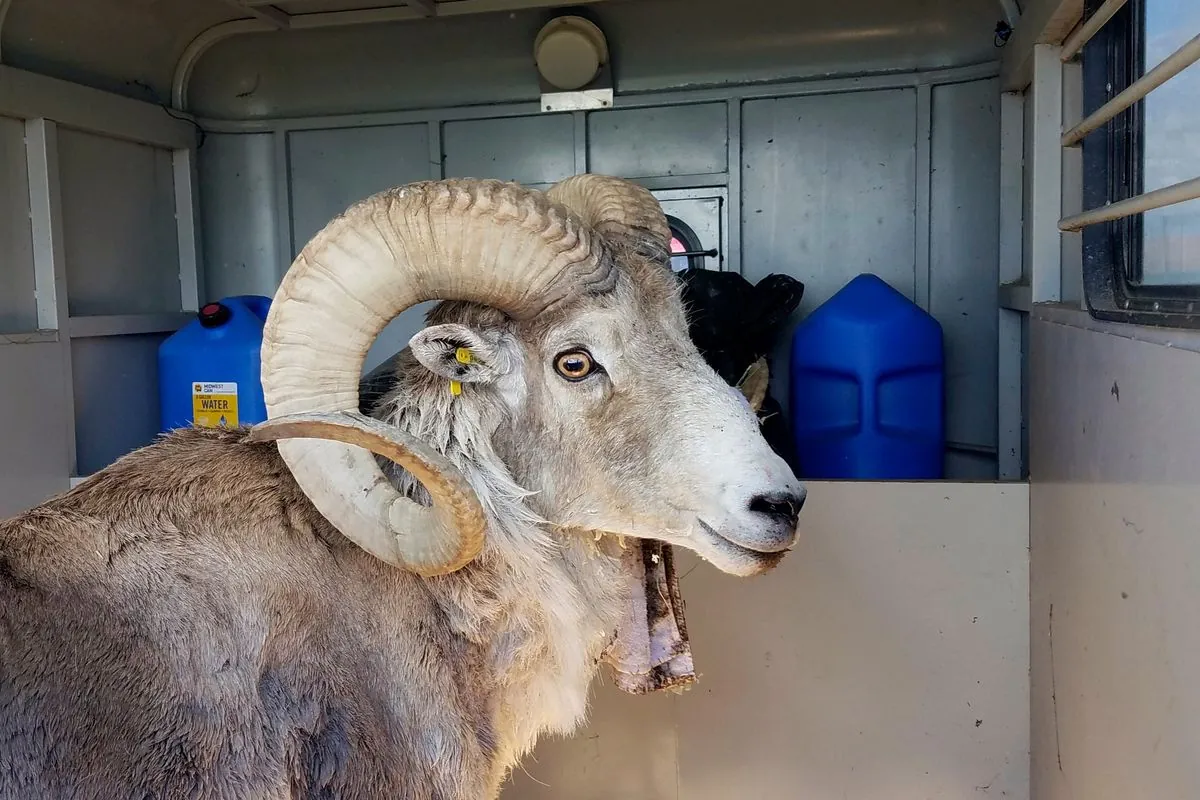Montana Rancher Jailed for Illegal Sheep Hybridization Scheme
An 81-year-old Montana rancher received a six-month prison sentence for illegally breeding hybrid sheep using Marco Polo genetics. The case highlights concerns over wildlife trafficking and genetic manipulation in trophy hunting.

Arthur "Jack" Schubarth, an 81-year-old rancher from Vaughn, Montana, has been sentenced to six months in federal prison for his involvement in an illegal sheep breeding operation. The case, which concluded on October 1, 2024, sheds light on the complex issues surrounding wildlife trafficking and genetic manipulation in the trophy hunting industry.
Schubarth, who has been in the game farm business since 1987, pleaded guilty in March 2024 to charges related to the illegal use of tissue and testicles from large sheep hunted in Central Asia and the United States. His goal was to create hybrid sheep with enhanced physical attributes for captive trophy hunting operations in Texas and Minnesota.
The illegal breeding scheme centered around the use of genetic material from Marco Polo sheep, which are native to the Pamir Mountains of Central Asia. These impressive animals, named after the famous explorer who first described them in his travels, are known for their massive size and impressive horns. Marco Polo sheep are considered a subspecies of argali, the largest wild sheep in the world.

Schubarth's operation involved cloning a Marco Polo sheep hunted in Kyrgyzstan in 2013, which he named Montana Mountain King (MMK). The use of cloning technology in wildlife-related activities remains a topic of ethical debate, particularly since the first successful animal cloning of Dolly the sheep in 1996.
The illegal breeding operation had far-reaching consequences. Schubarth sold semen from MMK and hybrid sheep to individuals in Texas, while a Minnesota resident brought 74 sheep to Schubarth's ranch for insemination. The hybrid sheep were also sold to people in multiple states, including Alabama, Arkansas, Kansas, Missouri, Nebraska, Ohio, Oregon, South Dakota, and West Virginia.
U.S. District Court Judge Brian Morris, who presided over the case, emphasized the seriousness of Schubarth's actions, stating:
"You were so focused on getting around those rules you got off track."
The sentence handed down to Schubarth includes a $20,000 fine and a $4,000 payment to the U.S. Fish and Wildlife Foundation. Additionally, he is required to slaughter the remaining hybrid sheep with Marco Polo DNA on his ranch by the end of the year, with the meat being donated to food banks.
This case highlights several important issues in wildlife conservation and management:
- The illegal wildlife trade is a multi-billion dollar industry worldwide, threatening biodiversity and ecosystems.
- Genetic hybridization can lead to the loss of unique adaptations in wild populations, potentially harming conservation efforts.
- The U.S. Fish and Wildlife Service plays a crucial role in enforcing wildlife laws and protecting ecosystems.
- The Endangered Species Act of 1973 and the Lacey Act are important legal tools for combating wildlife trafficking.
- Captive hunting operations, also known as "canned hunts," remain controversial and are regulated differently across states.
The Schubarth case also raises concerns about the impact of selective breeding on animal health. Inbreeding and loss of genetic diversity can lead to various health issues in animals, a problem that has been observed in many domesticated species.
As the investigation continues, with potential co-conspirators yet to be named, this case serves as a reminder of the ongoing challenges in wildlife protection and the need for strict enforcement of conservation laws. It also underscores the importance of maintaining genetic diversity in wildlife populations, which is crucial for their long-term survival and adaptability in the face of environmental changes.


































